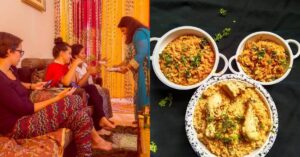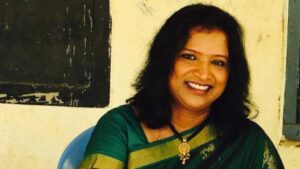Nagaland Startup Brings Tribal Jewellery In Vogue, Helps Artisans Earn Upto a Lakh/Year
Founded by Nengneithem Hengna, Runway Nagaland manufactures and supplies indigenous tribal jewellery from Nagaland to the rest of India.
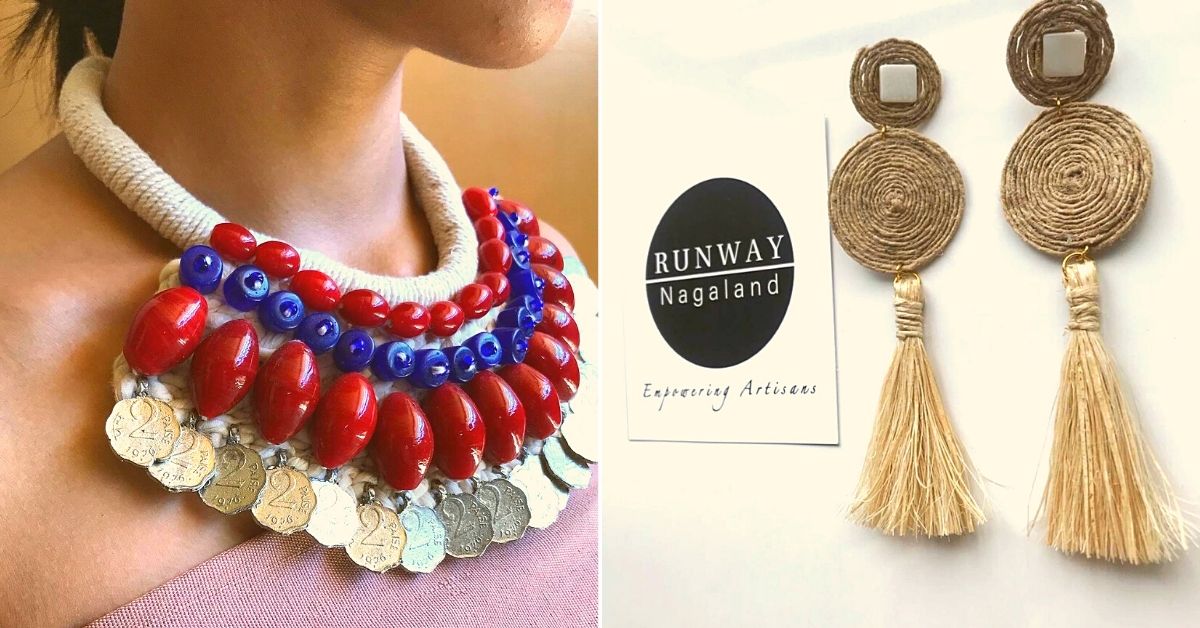
When Nengneithem Hengna, the youngest child of a retired police officer/social worker and homemaker from Dimapur, opened a store in 2011 to give local artisans a platform to market their products outside Nagaland, she was met with resistance.
This resistance didn’t come from within her family, who have always been supportive of her decisions, but from the society she grew up in. After all, she was leaving behind a well-paying job in a major FMCG (fast-moving consumer goods) conglomerate to venture into the unknown.
“It was a challenge venturing into the entrepreneurial space as a woman in Nagaland. I was subjected to the usual stereotypes a woman faces in the world of business, besides the lack of investment and funding challenges that many first-time entrepreneurs go through, particularly in the North East. Initially, my work was never taken seriously, but I always made sure not to waste my time arguing. Instead, I decided to prove myself and establish a meaningful business venture,” Nengneithem tells The Better India.
Today, the 33-year-old employs 27 full-time salaried women and empowers hundreds of local artisans through her venture Runway Nagaland, which she founded on 15 October 2012. She describes Runway Nagaland as a platform that empowers artisans and preserves the state’s indigenous art and age-old handmade practices.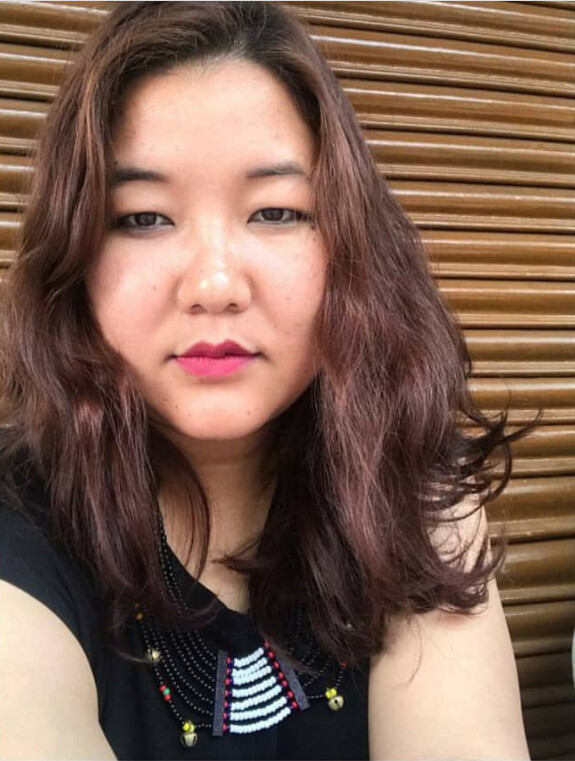
‘Dedicated to tradition’
In 2013, Runway Nagaland became the first brand to systematically manufacture and supply tribal jewellery from Nagaland to the rest of India. From then on, the startup gradually expanded its range of products to promote indigenous handmade products of the state. Today, it owns three brands that offer an eclectic collection of traditional Naga jewellery, handwoven crafts, and premium contemporary pieces, and is opening a store in Dimapur, coming back to where it all began. It also has a dedicated team of artisans working full time in developing designs and specialising in customisations, while also working in collaboration with other designers and brands.
“While exploring endless possibilities and potential of our handmade crafts and accessories in a bigger market, I strongly felt the need to bridge the gap between makers and buyers. I wanted to pave a way for myself and fellow artisans to be self-reliant, while also encouraging their journey into the world of entrepreneurship. Runway Nagaland was formed to create a platform that provides opportunities and a space for creativity. We work with hundreds of weavers and artisan clusters/self-help groups (SHGs) like the Community Learning & Business Resources Centre in Jalukie town, Lovi Twine in Pimla village and Dorcas in Khaibung Village, among others,” she says.
Runway Nagaland helps these clusters sell their products to bigger markets for a small percentage. Nengneithem claims that artisans associated with Runway Nagaland receive 80-85% of the earnings generated from the sale of various products. Having said that, she argues that the venture is more than just about the money they make.
“We have also recently set up a unit in Wetting, a remote village in Mon district, with a motive to preserve the indigenous art of making handmade accessories by learning from the elders of this village. We are dedicated to our tradition,” she adds.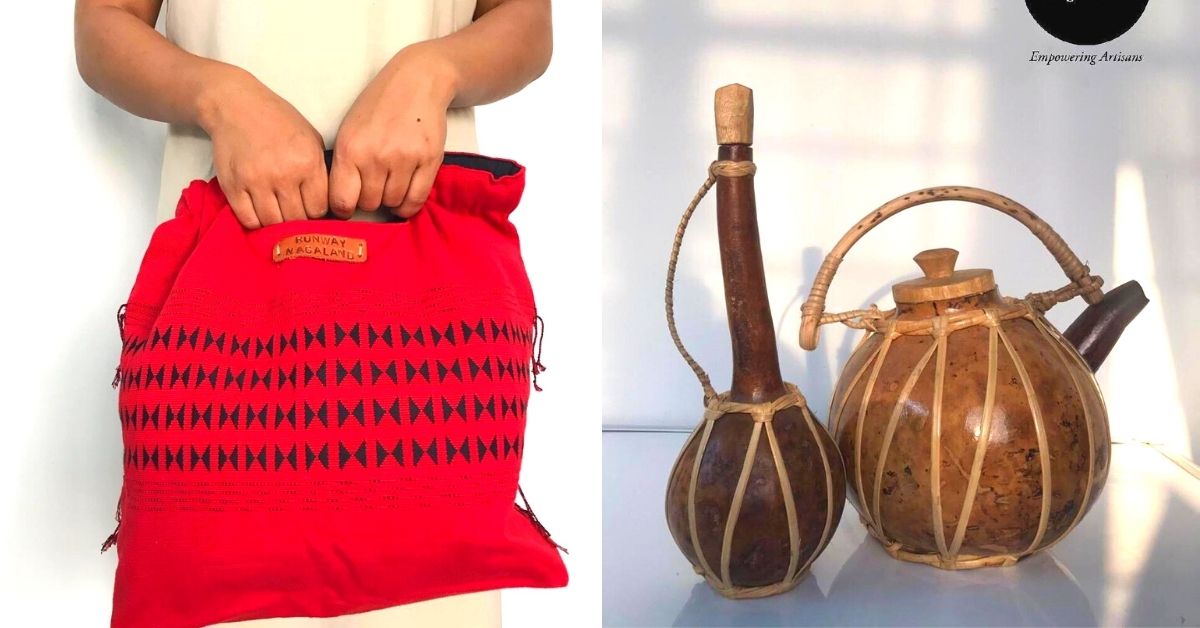
Gou-lu treasure
One of Runway Nagaland’s standout in-house brands is Goulu Heritage Jewellery. In Kuki, the word ‘Goulu’ means ‘treasure’. Nengneithem believes that such jewellery is passed down from one generation to another and carries with it stories and a treasure-like value.
“With Goulu, we wanted to pass on our rich heritage and culture that we value and treasure. This jewellery line was created in an attempt to preserve and maintain the art of handmade jewellery, which is very famous worldwide but is fast diminishing due to the lack of market and a systematic set-up in our own communities. Under ‘Goulu Heritage Jewellery’ we sell traditionally inspired pieces of jewellery with a contemporary touch to it. These range from earrings, necklaces to chokers, head accessories in various designs and colours representing our culture with contemporary touches in all our pieces. We use natural fibres, brass, glass beads, natural seeds and precious stones to make these items,” she explains.
Their earrings start from Rs 800 for the simpler pieces. Chokers and necklaces start from Rs 1,050 to up to Rs 50,000 depending on the intricacy of the design and materials used. In the past four years, this brand has earned revenues of about Rs 40 lakh.
“A lot of our customers have recently been interested in our Naga culture and traditions, turning their attention to our pieces as well. This line of tribal jewellery can be easily styled in any outfit or occasion with its contemporary feel and designs. It is also an attempt to introduce our tribal line of jewellery into the mainstream fashion world,” notes Nengneithem.
Take Tsükoli, which are earrings worn by women of the Sumi tribe alongside a beautiful headgear called Akütsükukha. They are both made from goat hair and fibre of orchid plants.
“The fibre from the stems of the Orchid plants is used in the binding of the goat hair for the headgear and earrings. The orchid fibre is known to be strong and durable so it is used for long-lasting quality. The headgear and earrings signify victory of a war. During the olden days, it was known to be worn by the wives and children of the village chief man or esteemed warriors, but in recent times, it has become the prominent ornament piece for Sumi women. The rich colours of red and yellow widely complement the traditional attire of the Sumi tribe, and [the jewellery] are admired by many,” says this Runway Nagaland description.
Another example is a simple and elegant neckpiece from the Lotha tribe called ‘Yikphyan’. This necklace is worn by Lotha women during special occasions and festivals. “The orange beads are known as ‘Senthan’ and the white shell is known as ‘Tsükro’. They are made from ivory. Senthan has 5 lines in accordance with the culture of the Lotha tribe, where a girl child is named only after 5 days of birth,” notes this description.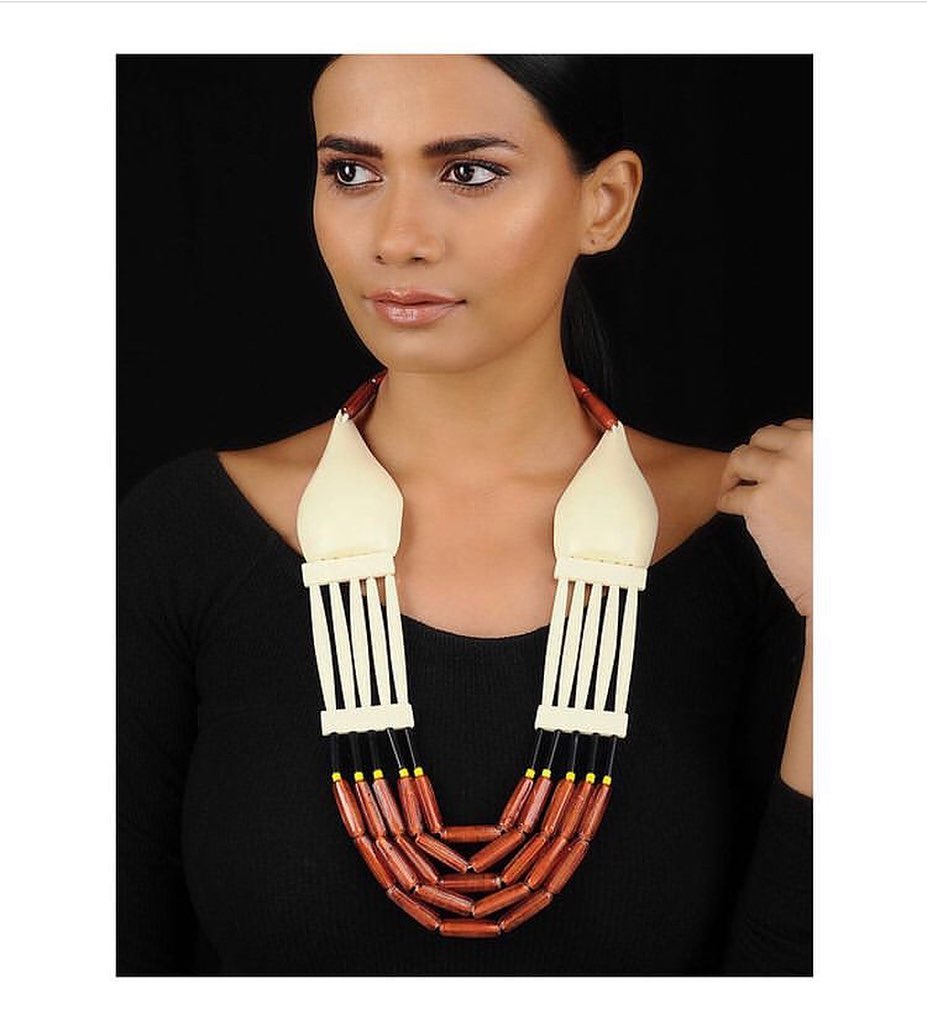
You also have the ‘Tsűkrű’ necklace of the Angami tribe. This is a yellow necklace made from the fruit of ‘’Tsűkrű’ plant. Today, youngsters and adults alike wear this simple yet rich accessory in their semi-traditional clothing during festivals and traditional events. These are just a couple of examples from Runway Nagaland’s in-house brand.
However, one of their more popular selling items is the Thangnang and Saipikhup pattern necklaces adorned by members of the Kuki tribe.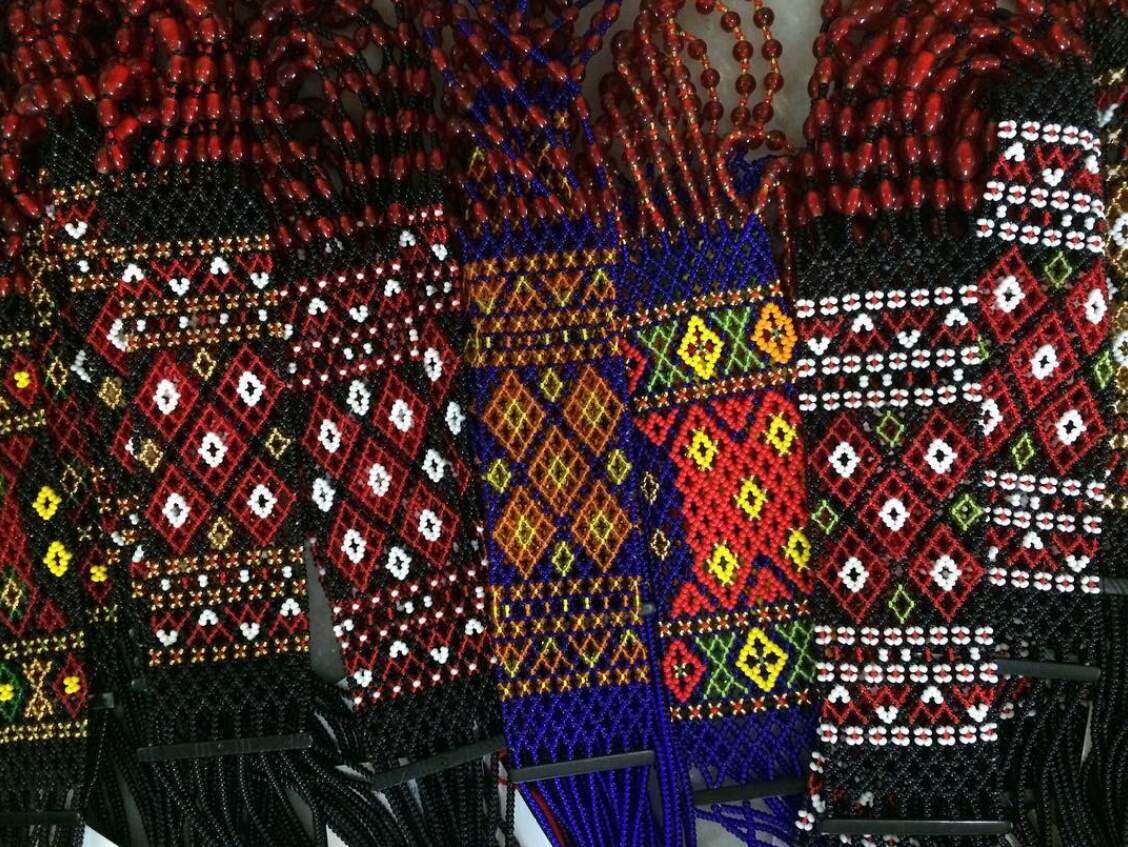
“Our biggest market is in India, although we are also exploring international collaborations. We have a few international clients. Most recently, Impact Hub Berlin, a Germany-based consultancy, extended their support to us for exploring the European market,” she says.
Employing only women
The company employs women from a variety of tribal communities such as Sema, Kuki, Sangtam, Zeliang, Lotha, Ao, Khiamniungan, Yimchunger and Angami.
Take the example of Nelhai Doungel, a single mother and widow from Phaipijang village in Dimapur district, who joined Runway Nagaland in October 2018 and currently works in the brick-stitch and tailoring department while also heading the maintenance of stocks.
“You can already guess how hard my life has been as a single mother. I try to be strong but there are times when I break down and silently wish my husband was alive when things get difficult. I joined Runway Nagaland because I wanted a stable income. But working here, I realised that it’s not only the money that matters in life but self-respect, love and being accepted. I’m so happy that my work has given me a new identity in society. I’m no longer just a widow, but something more,” she says.
Meanwhile Kichunsiliu from Dimapur, who works in the tailoring and Goulu Tribal Jewellery departments, never had the opportunity to study in school because of her hearing disability. Working in Runway Nagaland, however, has given her a new lease of life.
“Although it has been only a couple of months since I started working with Runway Nagaland, it has given me the opportunity to become independent and feel a real sense of self-worth. When I was a child, my aunt would come to my house every weekend to teach me basic alphabets, but learning was difficult. As a result of my disability, I could never prove my worth to society because I wasn’t literate enough like the rest. Working in Runway Nagaland has given me a lot of respect from people who saw no hope in me,” she says.
Besides giving these women a new lease of life, Runway Nagaland has also shown the possibilities on offer with entrepreneurship in a state which has long suffered from civil unrest and conflict. Nengneithem believes there is a lot of untapped potential in the state.
“The long term plan must be to educate students from a young age about entrepreneurship. The idea is not only to provide employment opportunities to the society but also engage the well-educated and innovative minds in bridging the gap between rural and urban Nagaland. We live in close-knit communities and our strength lies in the collective. So, the aim is to forge a strong ecosystem within Nagaland, and in this regard, the government and existing entrepreneurs should work together,” she says.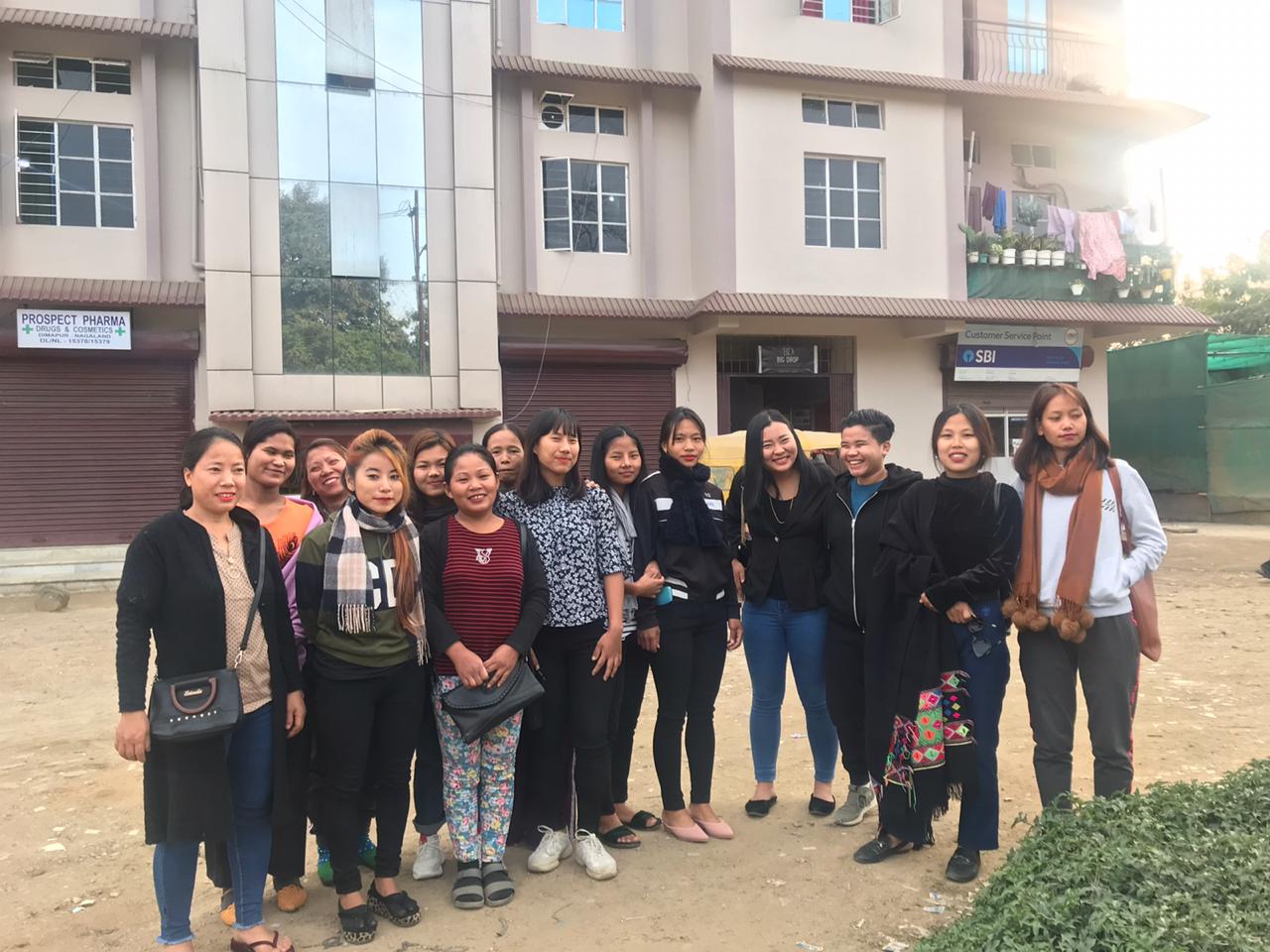
Battling COVID, and opportunities ahead
COVID-19 has affected Runway Nagaland’s business like most, but the lockdown period gave them an opportunity to reflect and work on new projects. Through this period, they’ve also extended their support to artisans and expanded their business.
“We spent the first lockdown in 2020 researching, experimenting with and understanding banana fibre and how we can use it in our jewellery and accessories, while also finding sustainable ways of harvesting it without harming nature. But our business operations were badly affected due to the lockdown. We are also working towards building and utilising our social media platform to present the art and lifestyle of Nagaland artisans to the world and on developing new jewellery designs as well. We have also taken up interior designing projects and skill development workshops, besides launching a series called ‘Know Thy Culture’, which presents the cultural and traditional values of each tribe’s jewellery,” she says.
The startup is looking to open more stores in different cities, which they believe will create a bigger platform for Nagaland’s indigenous arts and crafts, as well as those who make these unique products.
(You can check out their Instagram page here.)
(Edited by Divya Sethu)
Like this story? Or have something to share? Write to us: [email protected], or connect with us on Facebook and Twitter.
This story made me
- 97
- 121
- 89
- 167
Tell Us More
We bring stories straight from the heart of India, to inspire millions and create a wave of impact. Our positive movement is growing bigger everyday, and we would love for you to join it.
Please contribute whatever you can, every little penny helps our team in bringing you more stories that support dreams and spread hope.






